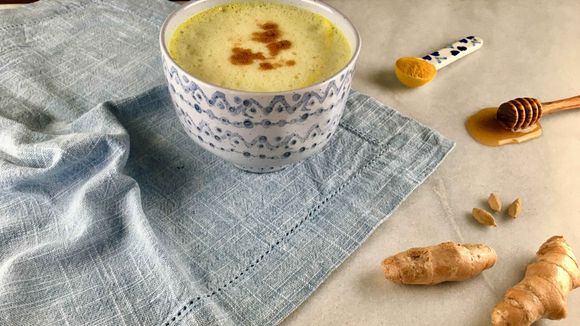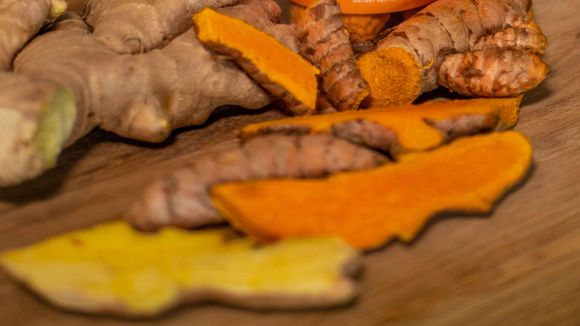Understanding Alzheimer's Disease
Alzheimer's Disease is a progressive neurological disorder that affects millions of people worldwide. It is the most common cause of dementia, leading to memory loss, cognitive decline, and behavioral changes. While the exact cause of Alzheimer's is still not fully understood, it is believed to be a combination of genetic, environmental, and lifestyle factors. Key risk factors include aging, a family history of Alzheimer's, and certain chronic health conditions like diabetes and heart disease.
The Golden Spice and Alzheimer's Disease:
Turmeric, a staple in traditional Indian cuisine, contains an active compound called curcumin. This powerful antioxidant and anti-inflammatory agent has been the focus of numerous scientific studies that aim to understand its potential benefits in preventing and treating Alzheimer's Disease.
In one such study, researchers found that curcumin could inhibit the formation of amyloid-beta plaques, which are considered a hallmark of Alzheimer's Disease. These plaques build up in the brain, disrupting the communication between nerve cells and leading to cell death. Curcumin's potential to prevent plaque formation suggests a promising role in the fight against Alzheimer's Disease.[ref. 1]
Another study showed that curcumin could help reduce inflammation in the brain, which is a contributing factor to the development of Alzheimer's. By lowering inflammation, curcumin may protect brain cells from damage and improve overall cognitive function.

Photo by Hilary Hahn on Unsplash
Turmeric Recipes for Better Brain Health:
Incorporating turmeric into your diet can be both delicious and beneficial for your brain health. Here are some easy-to-make recipes featuring turmeric:
1. Golden milk
Heat up a cup of your favorite milk (dairy or plant-based), then stir in 1/2 teaspoon of turmeric powder, a pinch of black pepper, and a drizzle of honey. Enjoy this comforting beverage daily for a brain-boosting treat.
2. Turmeric smoothie
Blend together a banana, a handful of spinach, 1/2 teaspoon of turmeric powder, a pinch of black pepper, and a cup of your preferred milk. This vibrant smoothie is an excellent way to kickstart your day.
3. Roasted vegetables with turmeric
Toss your favorite vegetables (like cauliflower, carrots, and sweet potatoes) in a mixture of olive oil, turmeric, black pepper, and salt. Roast in the oven at 400°F (200°C) for 25-30 minutes until tender and golden. Enjoy these flavorful veggies as a healthy side dish.
A Word of Caution
While turmeric is generally safe for most people, it's important to remember that some individuals may be allergic to the spice. If you're considering adding turmeric to your diet, it's always a good idea to consult your healthcare provider, especially if you're taking medications or have existing health conditions.

Photo by Victoria Priessnitz on Unsplash
Questions and Answers
Q: Can I use fresh turmeric instead of turmeric powder in the recipes?
A: Absolutely! Fresh turmeric can be used as a substitute for turmeric powder. Just remember to peel the skin and finely grate it before adding it to your dishes. A general rule of thumb is to use 1 inch of fresh turmeric for every 1/2 teaspoon of turmeric powder.
Q:How much turmeric should I consume daily for optimal benefits?
A: There isn't a one-size-fits-all answer to this question, as individual needs may vary. However, a common recommendation is to consume 500-1,000 milligrams of curcumin per day, which equates to approximately 1-3 grams of turmeric powder. It's always best to consult with your healthcare provider for personalized advice.
Q: Can I take turmeric supplements instead of incorporating it into my diet?
A: Yes, turmeric supplements are available, and they can be a convenient way to ensure you're getting an adequate amount of curcumin. However, it's important to choose high-quality supplements from reputable manufacturers and follow the recommended dosage instructions. Consult your healthcare provider before starting any supplement regimen.
Q:Is there any interaction between turmeric and medications?
A: Turmeric can interact with certain medications, such as blood thinners, diabetes medications, and blood pressure medications. If you're taking any of these medications or have concerns about potential interactions, it's essential to consult with your healthcare provider before adding turmeric to your diet or taking supplements.
Q: Why is black pepper often recommended alongside turmeric?
A:Black pepper contains a compound called piperine, which significantly enhances the absorption of curcumin in the body. By combining turmeric with a pinch of black pepper, you can maximize the bioavailability and potential benefits of curcumin.









